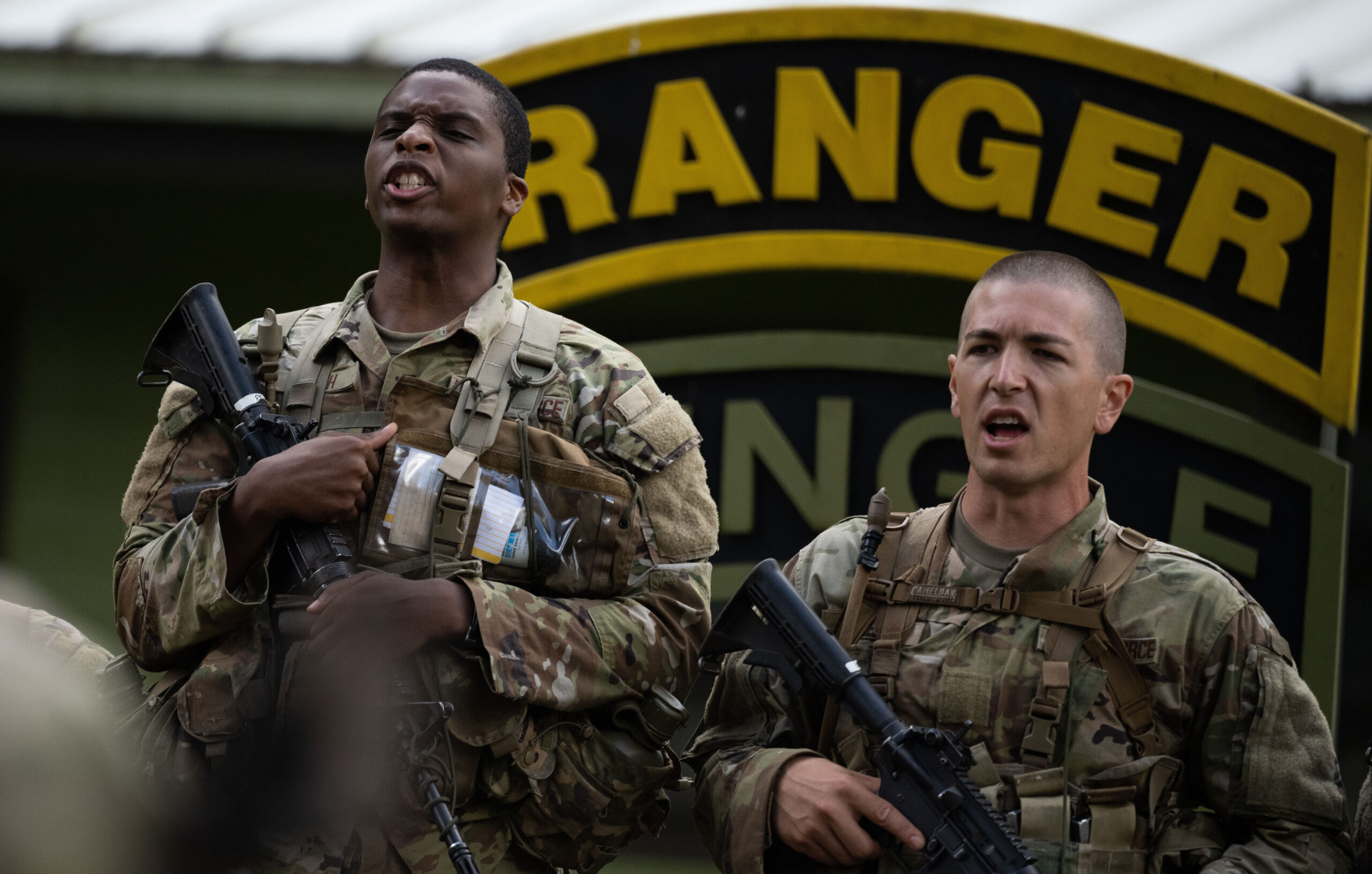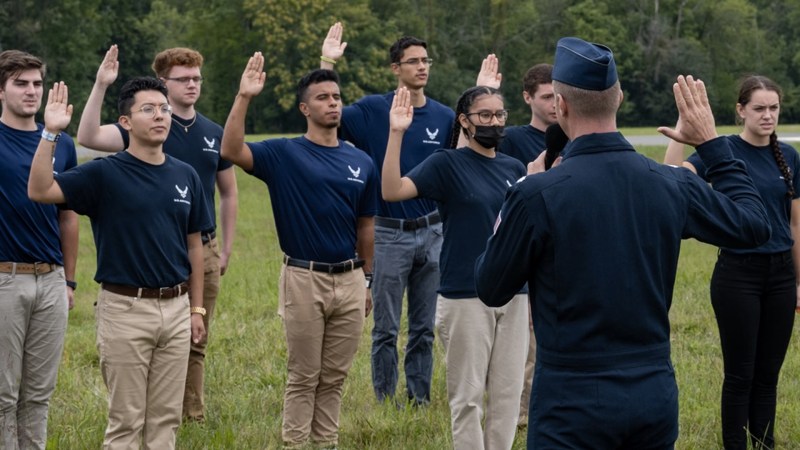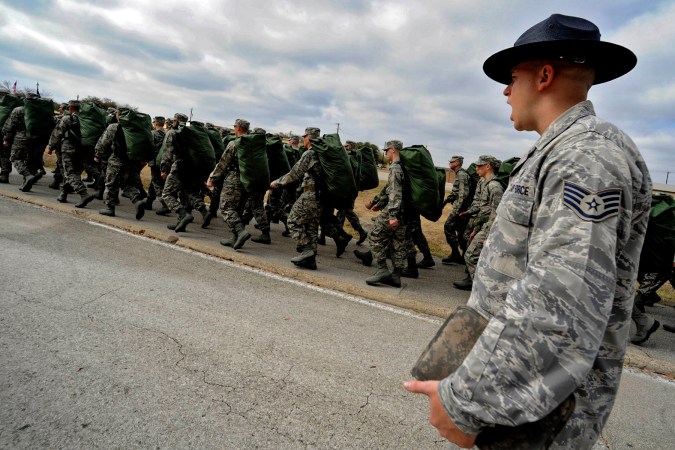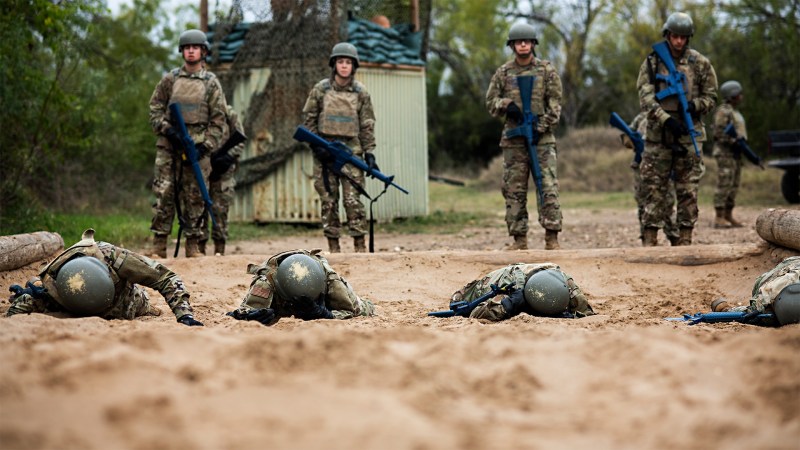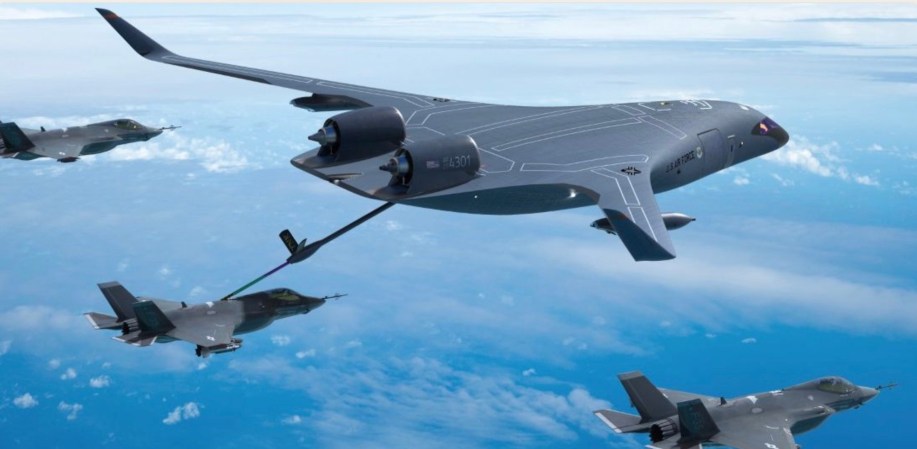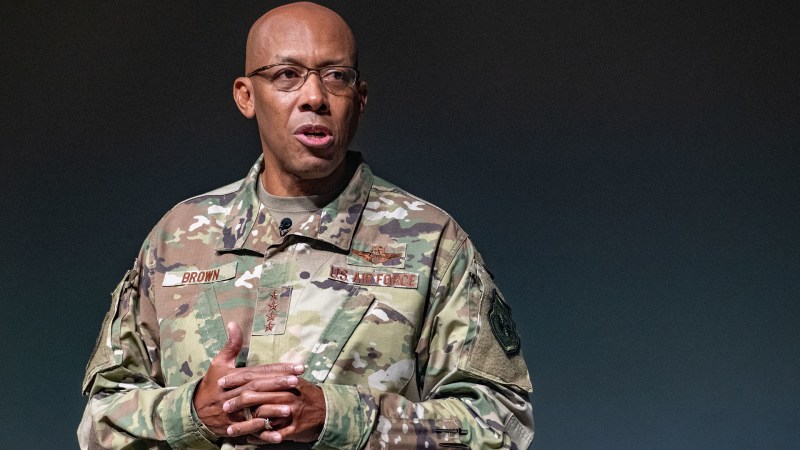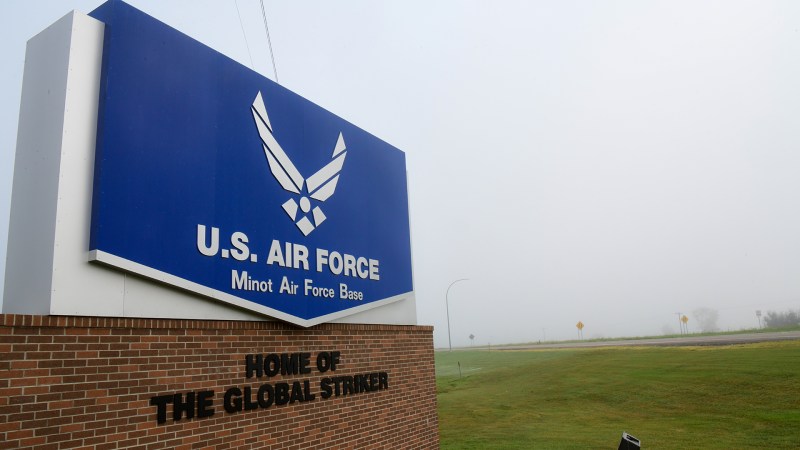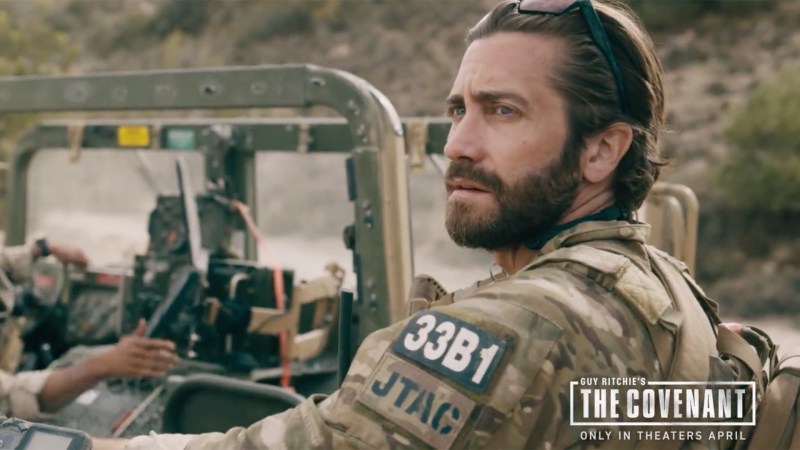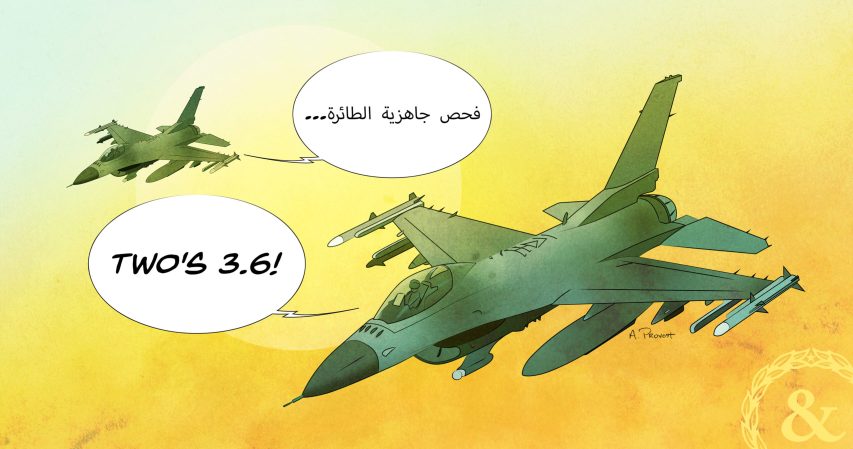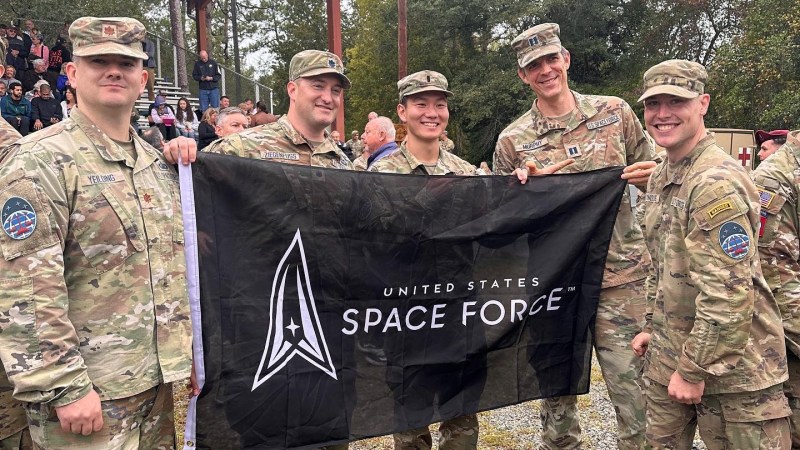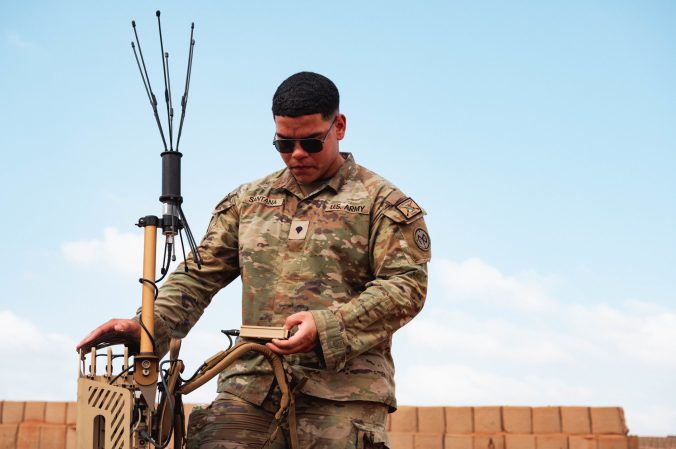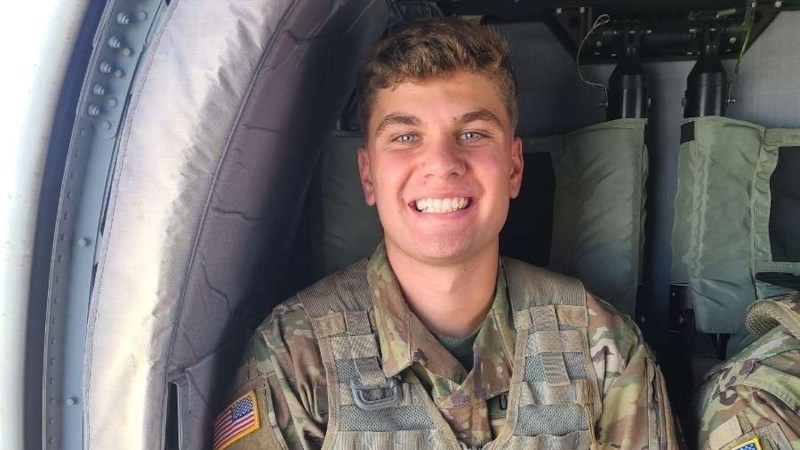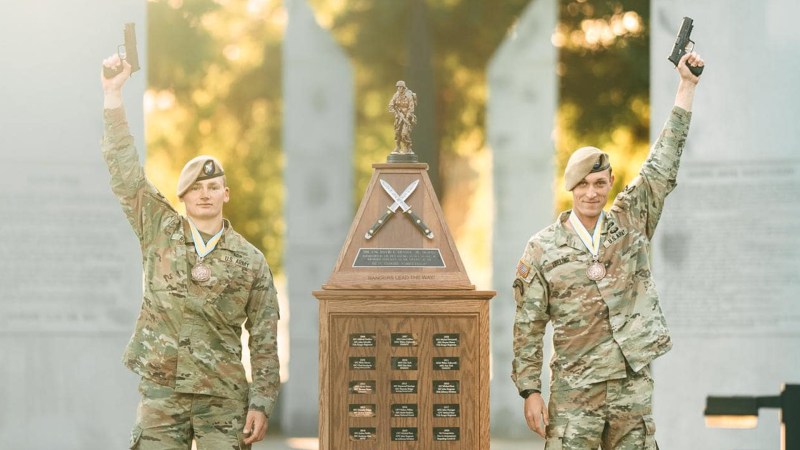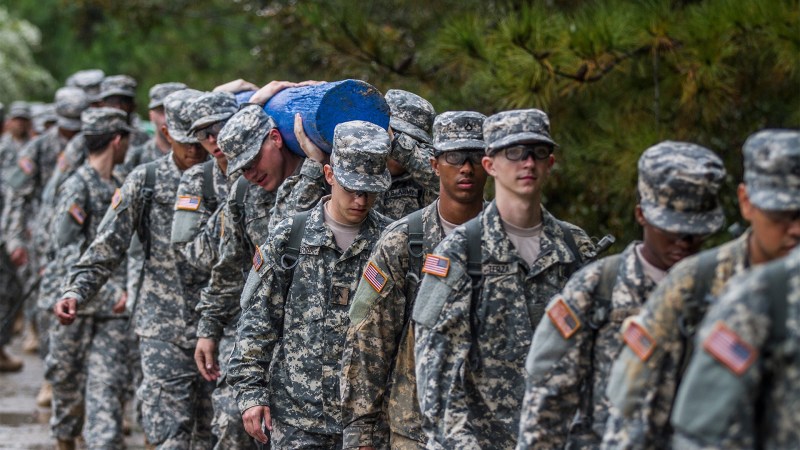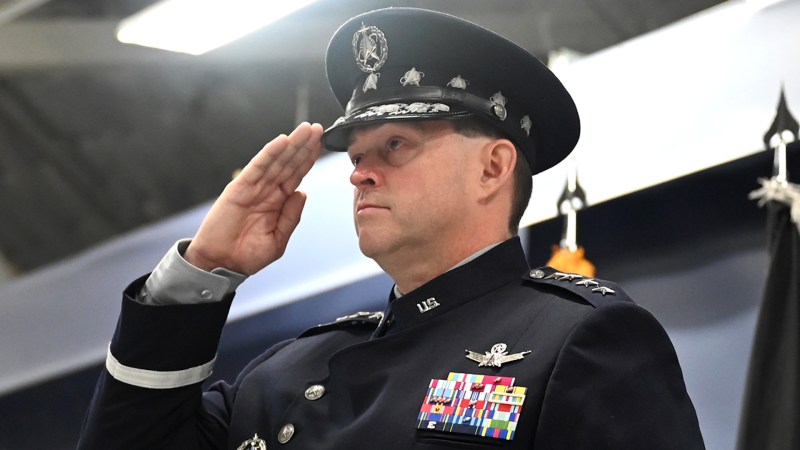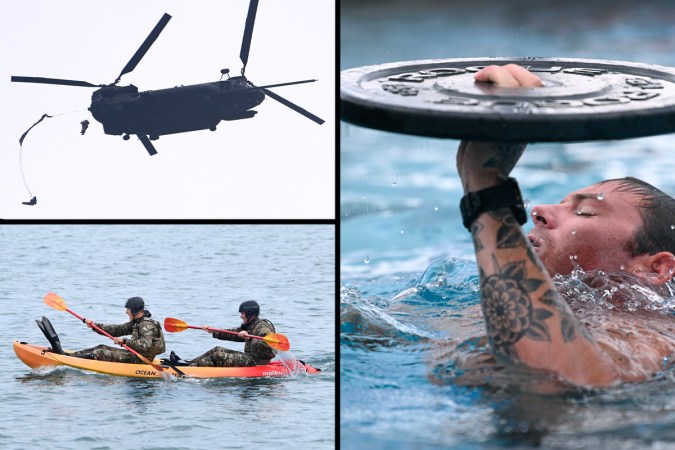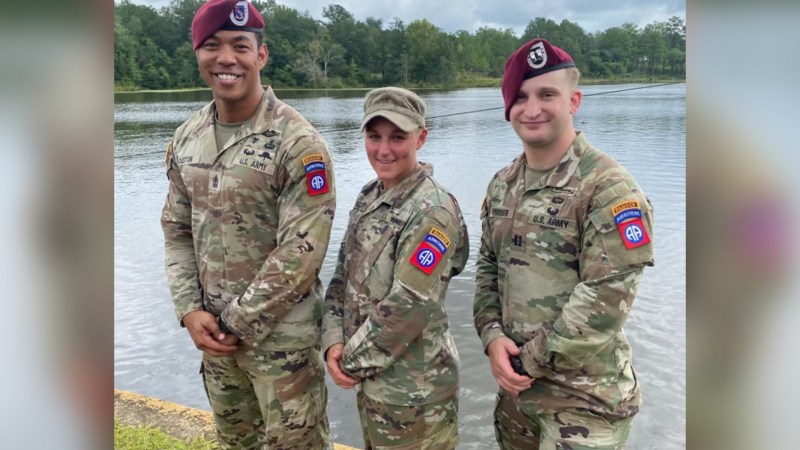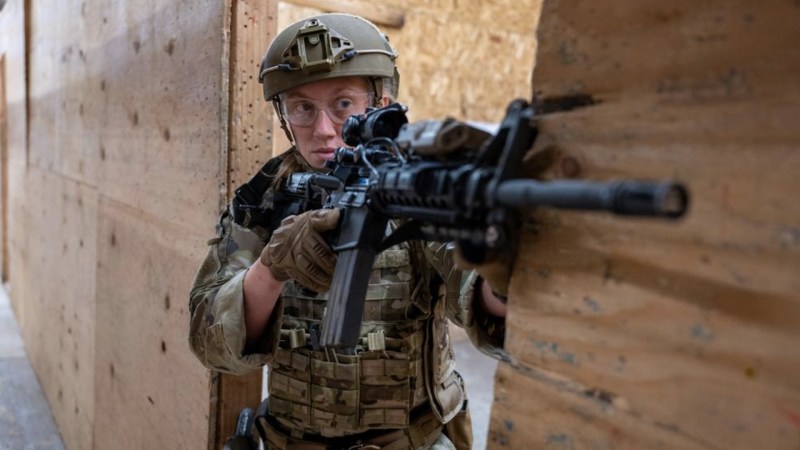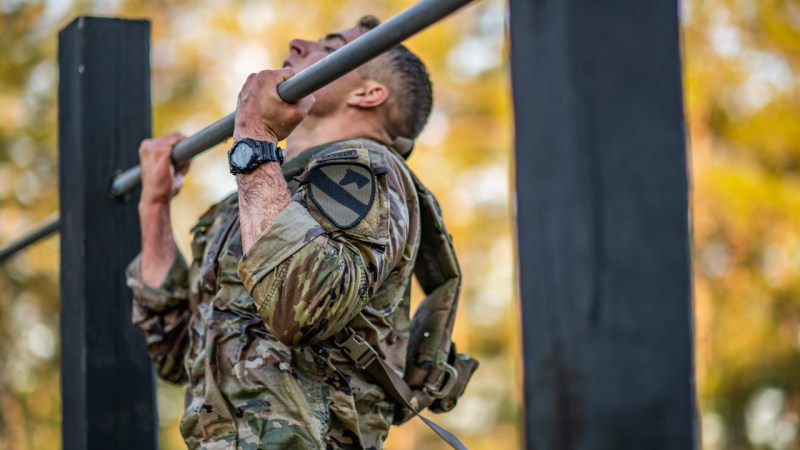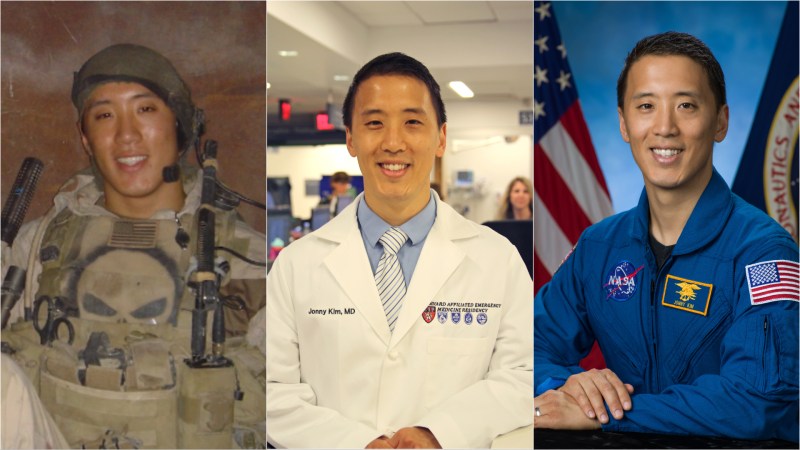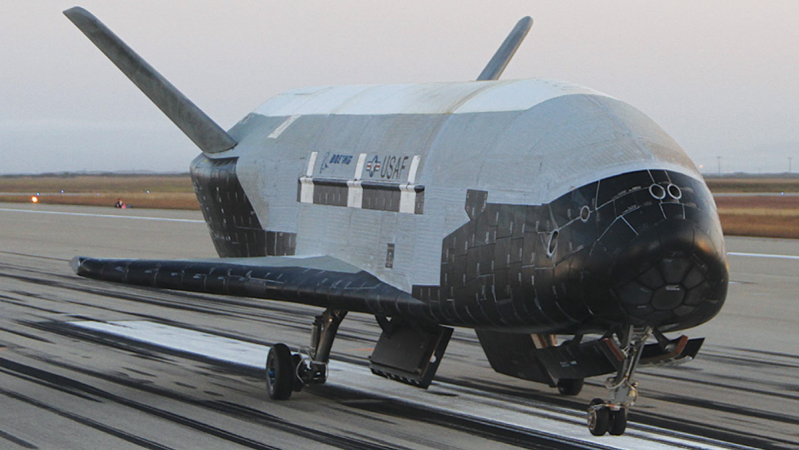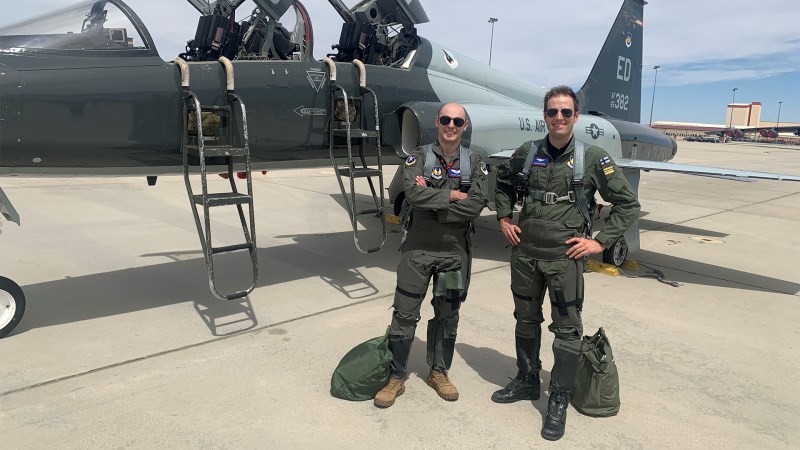When a Space Force officer graduated from the Army’s vaunted Ranger School last year, reactions were, well, predictable.
“How the hell did that happen?,” was a typical response posted in the comments to the story on Task & Purpose.
One answer to that question is that both the Air Force and Space Force are sending far more candidates to Ranger School in recent years than even five years ago. And those candidates all arrive at Fort Moore, Georgia for Ranger training after three weeks in a specialized Air Force prep course.
Space Force Capt. Daniel Reynolds graduated from the 62-day Ranger course in October, the latest in a growing number to have started the path through the training at the Air Force’s Ranger Assessment Course, or RAC.
“The bar to gain acceptance to Ranger School is high, and rightfully so,” Reynolds said in an Air Force release. “RAC allows prospective students to understand what will be expected of them.”
The 19-day prep course is taught by Ranger-qualified Air Force instructors that include Special Warfare airmen, drone pilots, and Security Forces. The service has held the course in the jungle terrain of Schofield Barracks, Hawaii, and at the Air Force Security Forces Center, a dusty training range north of San Antonio, Texas, where it may soon be permanently based.

For 19 days, the program puts classes of up to 30 candidates through the infantry skills, fitness tests, and physical exhaustion that they’ll face at Ranger School
“The RAC and Ranger School were the catalysts for some of my life’s greatest transformations,” said Reynolds, who is now the assistant director of operations for the 4th Test and Evaluation Squadron at Peterson Space Force Base, Colorado. “The experience transformed me into a much more confident, capable, and purpose-driven human being, and that has affected every aspect of my leadership development for the better.”
Run by the Army at Fort Moore, Georgia, Ranger School has long been one of the toughest schools in the U.S. military, routinely washing out over half of those that begin each class, even though most candidates arrive after many weeks of intensive preparation. The school is broken into three phases — an initial Darby phase at Fort Moore heavy on fitness challenges and infantry skills, a mountain phase in northern Georgia, and a final two weeks in Florida swamps at Eglin Air Force Base.
Students at the school “patrol” dozens of miles carrying upwards of 100 pounds of gear to accomplish missions, each student taking a turn leading a patrol. Students are graded on the success of the patrols they lead, fitness tests, and a wide range of field and combat skills.
Completing the school and earning the black and yellow Ranger tab is widely viewed as a right of passage in many of the Army’s combat arms jobs.
But Ranger training is not closely associated with most Air Force jobs, nor the high-tech fields of space and satellites. Even among the Air Force’s elite Special Warfare airmen including Pararescuemen and Combat Controllers, Ranger tabs are an exception in any formation.
But, according to Air Force instructors, the Air Force now prioritizes sending troops there due to the school’s focus on leadership.
“Ranger School, as the world’s premier combat leadership course, expertly teaches resilience, grit, and perseverance in the face of overwhelming odds,” Reynolds said. “It teaches leaders how to break down complex problems and craft decisive solutions to dynamic combat scenarios. This is incredibly relevant to any career field in any branch of military service.”
Prior to 2019, the Air Force sent five or six candidates to Ranger school each year, primarily troops in Security Forces or Special Warfare.
But beginning in 2019, those numbers have quadrupled, according to Mark Kinkade, a spokesperson for the Air Force Installation and Mission Support Center, where RAC courses are often held.
“The number varies, but the Air Force typically sends 20-25 personnel to Army Ranger School per year,” Kinkade told Task & Purpose in an email.
To select and train those candidates, the service has developed the Ranger Assessment Course, a 19-day prep course. Held by Air Force instructors who have completed Ranger School, the course has been held in the jungle terrain of Schofield Barracks, Hawaii, and at the Air Force Security Forces Center, a dusty training range north of San Antonio, Texas, where it may soon be permanently based.
For 19 days, the program runs classes of up to 30 candidates through the infantry skills, physical training, and physical exhaustion that they’ll face at Ranger School.
The course is open to airmen and guardians from any job in the Air Force or Space Force.
“While the majority of Ranger School attendees come from combat arms career fields, individuals from other Air Force specialty codes can also attend if they meet the necessary prerequisites and requirements,” said Gabriel Rodriguez, readiness training and RAC program manager. “Ranger School can provide valuable leadership and tactical skills, regardless of the individual’s primary AFSC.”
The Air Force also has encouraged Ranger graduates across the force to lead 3-day Ranger Assessment Preparatory Courses.
“Those courses could occur at any location across the Air Force where Air Force Rangers who graduated Army Ranger School wish to hold one,” said Kinkade.
At least one RAPC course was held at Vandenberg Space Force Base late last year.
Though the Air Force has had a prep course for Ranger-bound members, the 19-day RAC course is the most extensive yet. The course said Rodriguez, “includes strictly executing push-ups, sustaining the mental and physical toughness to meet the time standard on the 12-mile foot march, and honing the basic navigation skills required to pass the land navigation test on the first attempt.”
“A significant proportion of people who fail [Ranger School] do so because they arrived without deciding that the experience was something that their life needed,” said Reynolds. “When you’re more cold, wet, tired, and hungry than you’ve ever been in your life, those reasons will be what you will lean on to carry you through.”
The latest on Task & Purpose
- Navy will name a new ship for the ‘human tugboat,’ a forgotten WWII hero
- Soldiers now must pay out of pocket to store cars and belongings while deployed
- Inside a new technology for Marine marksmanship training
- Apple TV+ releases the opening title sequence for Masters of the Air
- Meet the skateboarding Green Beret shredding the civilian-military gap

